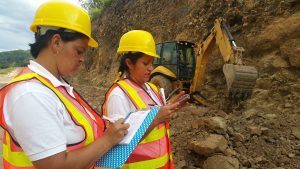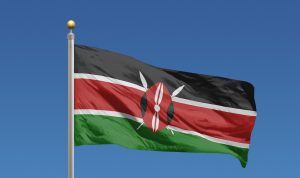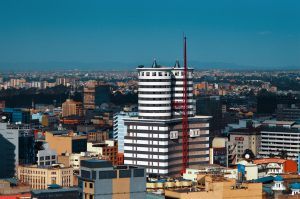Open Contracting for Better Goods and Services in Kenya
Kenyan government and civil society have a long history of collaborating on open contractingA transparent procurement process, known as open contracting, increases competition, improves public service delivery, and ensures governments better value for their money. Technical specifications: C... More policy and practice. Kenya’s fourth and most recent action planAction plans are at the core of a government’s participation in OGP. They are the product of a co-creation process in which government and civil society jointly develop commitments to open governmen... shows excellent progress in passing more ambitious and explicit commitments. Learn how Kenya has used feedback from OGP’s Independent Reporting Mechanism (IRM)The Independent Reporting Mechanism (IRM) is OGP’s accountability arm and the main means of tracking progress in participating countries. The IRM provides independent, evidence-based, and objective ... to strengthen its open contracting commitments and their implementation and how Kenyan stakeholders’ participation in two key global events helped sustain momentum for reform.
This story is part of a series called Reform in Action, which demonstrates how the OGP model contributes to domestic open government results.
Enablers of Progress
Long-term goal: Kenya has included open contracting across several OGP action plans. Continuing themes from one action plan to the next allows the work to scale and become more impactful and sustainable over time. Kenya’s commitments have grown from a call for a simple transformation of their old data formatting to the international Open Contracting Data Standard (OCDS) to an ambitious commitmentOGP commitments are promises for reform co-created by governments and civil society and submitted as part of an action plan. Commitments typically include a description of the problem, concrete action... in the current action plan to create a consolidated national system that fully complies with the OCDS and covers all stages of public procurementTransparency in the procurement process can help combat corruption and waste that plagues a significant portion of public procurement budgets globally. Technical specifications: Commitments that aim t... More in the country.
 Reform in Action Explore how reformers from across the globe leverage their engagement with OGP to achieve their open government goals and how incremental progress can lead to systemic change.
Reform in Action Explore how reformers from across the globe leverage their engagement with OGP to achieve their open government goals and how incremental progress can lead to systemic change.
The OGP Platform in Action
- IRM recommendations for stronger commitments: Kenyan stakeholders noted that the IRM recommendations helped reformers raise ambition across their four action plans and move from commitment design, to strong implementation, to initial results. The IRM’s report on Kenya’s second action plan highlighted that implementation of the open contracting commitment had been limited because of financial and capacity constraints. Based on this, Kenyan OGP stakeholders and Hivos designed a more concrete and ambitious open contracting commitment in 2018. This commitment ensured that the new public procurement portal, which was mandated under a 2018 Executive Order to replace the existing corruption-ridden treasury portal, would align with international best practices. Throughout the design and implementation phases, the IRM and SU highlighted opportunities for the new portal to be improved even further, including the use of the OCDS and the publication of data in user-friendly formats. This commitment in the third action plan aimed to improve transparencyAccording to OGP’s Articles of Governance, transparency occurs when “government-held information (including on activities and decisions) is open, comprehensive, timely, freely available to the pub... More through the new portal and reduce corruption by enhancing the openness and accessibility of procurement data and reducing the possibility of data tampering by third parties, a key issue with the old treasury portal. This commitment led to the initial publication of open, accessible, and timely data in OCDS format and set the stage for a current commitment to create a complete end-to-end procurement portal nationally and in Makueni County.
- Sustaining momentum through global open contracting events: The 2016 Anti-Corruption Summit in London helped consolidate interest and secure government buy-in on open contracting among Kenyan stakeholders. At the event, the Attorney General remarked that government contracts and budgets must be open and transparent to prevent and expose corruption and misuse of taxpayers’ money. Partly as a result of this momentum gathered from the Summit, Kenya passed its first action plan to explicitly mention open contracting as a national priority. The action plan called for increased transparency around bids and contracts, the implementation of the OCDS, and a do-not-pay database for black-listed contractors.
- Peer inspiration and learning: At the 2018 OGP Summit, the Kenyan government attended a panel discussion led by Hivos, Africa Freedom of Information Center, and Open Contracting Partnership on effective grassroots advocacy strategies for open contracting. Examples from countries like Ukraine and Guatemala showed Kenyan stakeholders how the OCDS could help them achieve their goal of disclosing more and better procurement information in user-friendly ways. At the end of this Summit, the Kenyan government recommitted to using technology to expose corruption and strengthen international cooperation by using the OGP as an accountability means.
Thanks to the chance to learn from other governments through conversations and peer exchanges at the Summit, Kenya’s third action plan contained more actionable and concrete commitments. Though OGP did not create the relationships between Kenya’s national government and actors like Development Gateway, Hivos, and Makueni County, the Partnership’s events were a chance to help them align their work and strengthen their collaboration.
- Capacity buildingEnhancing the skills, abilities, and processes of public servants, civil society, and citizens is essential to achieving long-lasting results in opening government. Technical specifications: Set of ac... and knowledge sharing: Kenya’s third action plan called for OCDS compliance in the national and local data portals, which required technical training on the data standard. OGP facilitated a training by the Open Contracting Partnership, the experts who maintain the standard and provide support on its implementation to governments worldwide, to the Public Procurement Regulatory Authority and Treasury, the two government departments leading on the development of the procurement portal. This training helped the Kenyan agencies to develop a pragmatic roadmap for translating their data into OCDS format and creating data systems that are OCDS-compliant.
In 2020, the Kenyan government attended two regional events that helped them adapt their open government reform work to the COVID-19 pandemic. An OGP-convened peer exchange between African government points of contact, enabled these actors to exchange and share their experiences in coordinating stakeholders on the OGP process during the pandemic. The Open Response + Open Recovery campaign referenced in these meetings helped plug COVID-19-related emergency procurement into broader discussions on strengthening procurement transparency during the co-creation processCollaboration between government, civil society and other stakeholders (e.g., citizens, academics, private sector) is at the heart of the OGP process. Participating governments must ensure that a dive.... Furthermore, the knowledge gained helped the Kenyan government keep engagement with civil society on the co-creation and implementation of its current open contracting commitments in spite of the challenges of the pandemic.
What’s Next
Under its current action plan, Kenya will continue to develop its open contracting portal, including making it fully interoperable with the beneficial ownershipDisclosing beneficial owners — those who ultimately control or profit from a business — is essential for combating corruption, stemming illicit financial flows, and fighting tax evasion. Technical... More portal. Kenya will also work with local open contracting reformers in places like Makueni Country on connecting local open contracting portals with the national portal. Better interoperability between these datasets will enable more and better data use, both within and outside of government.
No comments yet
Related Content

Open Contracting and Public Procurement in OGP
Open contracting and transparency in public procurement have proven to save money and broaden competition. It is becoming a global norm in OGP, with over 70 members committing to reforms…

Kenya
Kenyan reformers designed a fifth action plan that promises to strengthen government transparency, particularly around priority areas of climate action, data, procurement, public debt, and parliamentary activities. Commitments build on…

Reform in Action
Explore how reformers from across the globe leverage their engagement with OGP to achieve their open government goals and how incremental progress can lead to systemic change.


Leave a Reply